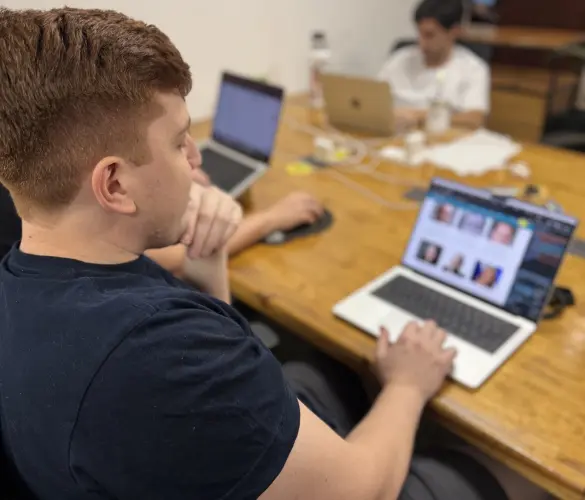- Blogs
- Industry Insights
- 14 Common Client Doubts and Questions in WordPress Development Projects
Industry Insights / 10 min read
14 Common Client Doubts and Questions in WordPress Development Projects

After building hundreds of WordPress sites over years of experience, we’ve heard pretty much every common doubt, question, and concern a client can have about their site.
In this article, we’re going to:
- Share the doubts and questions we’ve encountered the most often with clients.
- Give you some general pointers about how a reputable WordPress development company should reply to each.
- Explain our process for tackling each and the practices we use to solve any relevant issues.
Learning about these common doubts will help inform you about what you’re getting into when building or redesigning your site, and also guide you on how a reputable WordPress dev agency should approach these topics.
To make it even more useful, we’ll break down the questions into 2 categories: one for the final clients who own the website and another for digital agencies that outsource the development of the sites they’ve designed for their own clients.
Let’s get into it.
9 Common Doubts and Questions Asked by Final Clients
In this case, “final client” refers to the people or business(es) that own the website being developed. These clients usually ask more questions related to timelines and support.
1. How’s Progress Going on the Site?
Perhaps the most common questions and doubts we receive from clients are progress updates. It makes sense. They are making a big investment in their site, so they’re perfectly entitled to see updates whenever they feel it’s necessary.
The standard practice is to have weekly meetings with clients over Meet or whichever collaboration platform they prefer (Microsoft Teams, etc.). In these meetings, the WordPress agency should:
- Cover the progress made so far in the current sprint and the project as a whole.
- Display progress on ongoing design efforts (if necessary).
- Showcase the site’s in-progress frontend.
- Walk the clients through the backend settings (WordPress’s admin dashboard).
- Explain how to edit the site, create and publish content, etc.
However, some clients prefer more or less frequent communication schedules, and every team must adapt to these preferences and needs.
It’s also important to establish other communication channels, such as Slack and email, while clarifying the customer support hours.
Finally, one method we’ve used very effectively to keep clients updated at all times is our client dashboard. It’s a set of documents hosted on Notion that we use to:
- Visually represent the project’s timeline and the timelines of individual sprints and tasks.
- Give clients access to quick links that help them understand the scope of the project, the nature of what we’re doing, how WordPress works, and any other relevant information.
- Allow clients to leave feedback in a centralized location.
- Display how many pages are ready for content.
The client dashboard serves other purposes, but these are some of the most important ones. While not all WordPress dev teams need a client dashboard, they should all develop a system that allows them to share ongoing progress efficiently and transparently.
2. How to Stay in Touch?
In addition to the previously mentioned regular meetings, WordPress agencies should establish communication channels for instant messaging. The exact platform may depend on the client, but most agencies have moved to Slack since it allows them to create shared channels where only the relevant team members can participate.
3. How Easy Will it Be to Manage the Site?
Since most website owners are focused on their business and see their sites as a means to grow, they often don’t have the time or skills to manage it.
That’s why a WordPress development team should explain how to manage sites at the level necessary to keep them running smoothly. Meaning, teams should focus on educating their clients almost exclusively on the features that will be most relevant to them.
We take it a step further by modifying the admin dashboard to highlight only the features that are relevant to our clients’ everyday site management activities.
4. What Happens if There Are Issues and Bugs After Launch?
This is another common doubt. Clients are sometimes worried that, post-launch, they’ll find a bug that slipped through the cracks, and now they’re stuck with it without the skills to fix it or a team to fall back on without further payments.
For this reason, any reputable WordPress dev team should provide a warranty for any issues directly related to the scope of the project.
In our case, our services include support before, during, and shortly after launch. We also offer a 30-day warranty that covers any bug directly tied to our work.
After the warranty has passed, you may benefit from drawing a maintenance contract with a dev team (preferably the ones that built your site since they know it best) to ensure your site stays updated and bugs are fixed quickly.
5. What’s the Best Hosting Service for the Site?
There are multiple factors that determine which hosting provider to choose for your client, including speed, scalability, uptime, and the client’s budget.
A reputable WordPress development company should give you multiple options based on their experience and the needs of your website.
In our case, we almost always recommend managed hosting. It is more expensive than many alternatives, but it provides a level of support and reliability that would otherwise take an entire DevOps team to take care of.
Our go-to hosting service is WP Engine, which is optimized for WordPress, but in cases that require complex architectures, we may use Amazon Web Services.
6. Who Gets the Final Final Say on Designs Before Development?
Clients should always get the final say on their site’s design.
However, the design and development teams should always provide options and best practices to inform these decisions and ensure they’re as sensible, calculated, and aimed at improving the user experience as possible.
In our case, we provide clients with a “blueprint” after reviewing and organizing all design files (whether we created them from scratch or the client provided their own designs).
This document outlines the full scope of the project to ensure we are aligned on what our devs will implement in the development phase.
7. Will There Be a Mobile Version?
Over half of the time global users spend browsing the internet is done via mobile devices, so every WordPress development agency builds a mobile site along with a desktop version. Sometimes, there’s a tablet version, too.
8. Do Clients Need to Provide Web Designs Beforehand?”
Some clients fear that they won’t be able to hire a WordPress development agency if they don’t have any designs. The truth is that many agencies have their own design teams and can tackle the process of designing and building a site from scratch.
That said, some look primarily for clients who have already designed the site and need help developing it. In any case, all WordPress agencies will explore any design files you may have and work toward integrating your vision into the final result.
We go a step further and provide a Design Readiness service.
This service ensures a smooth and efficient handoff from web design to WordPress development by making all design elements consistent and standardized. It reduces the time needed to develop the site and saves clients dozens or hundreds of billable hours.
9. What Does the Completed Website Handover Look Like?
WordPress dev agencies should provide clients with a full guide explaining how the website works so that they know how to use it for their business, create and publish content, and any other use they may have for their new site.
Additionally, we provide 2 walkthrough sessions with them to make sure that they can ask all necessary questions.
12. What Does the Completed Website Handover Look Like?
WordPress dev agencies should provide clients with a full guide explaining how the website works so that they know how to use it for their business, create and publish content, and any other use they may have for their new site.
Additionally, we provide 2 walkthrough sessions with them to make sure that they can ask all necessary questions.
5 Common Doubts and Questions Asked by Digital Agencies
Digital agencies that outsource WordPress development usually ask more questions related to the nature of the partnership, along with technical and legal details.
1. What is White Label WordPress Development?
White label development means a WordPress agency will build websites as subcontractors to creative/digital agencies. Most of the time, the WordPress team will have no contact with the final client that will own the site.
Still, depending on the specifics of the contract, a WordPress agency may be as visible or invisible to the final client as the agency subcontracting it needs it to be.
2. Do the Developers Work With a CMS Other Than WordPress?
Some digital agencies have an idea of what content management system (CMS) or technology stack they want to use for their client’s site. Others have no knowledge of software to build websites and may just want a WordPress agency since they’ve heard it’s the most popular CMS in the world.
In this case, dev teams should be honest about the technology they focus on and its benefits for final clients and users.
This also means that devs should be honest enough to tell the potential client that they only accept projects within their area of expertise and will not move forward with a project that uses tech they have no experience in.
Our agency is laser-focused on WordPress to ensure we provide the best development services we can for our clients since we’re so experienced in using the platform.
3. What About NDAs?
Many final clients and digital agencies want to keep who they work with private.
As such, we and many other WordPress agencies would be happy to sign a non-disclosure agreement as part of the business relationship.
4. Who Owns the Codebase After the Project is Done?
In website development projects, it is customary that the final client who owns the site retains all intellectual rights after the project is done, including the code that makes the website’s features run.
There are some exceptions, but in most cases, the final client owns the codebase.
In our case, every single one of our clients is the owner of their code base. We always make sure that everyone has access to every document or repository related to the project so they can do whatever they want with the websites after we’ve done our part.
5. Will the Site Be Built With Visual Builder Plugins? (e.g.: Elementor, WP Bakery)”
Some WordPress teams create websites using drag-and-drop builders like Elementor and WP Bakery.
The team you’re talking to should be honest about their methods and explain their rationale for using them, whether it is a builder, custom code, or a combination of both.
In our case, we design and develop themes from scratch for each one of our clients using WordPress’s Site Editor feature, custom blocks, and custom code.
This gives us full control of everything we’re doing and makes it much easier to add as many new functionalities as clients need.
Ask the Right Questions When Considering a WordPress Development Agency
Asking thorough questions about the development process is the best way to understand what a WordPress agency can do for you and what methods they will use to accomplish it.
Whether you’re a website owner or a digital agency outsourcing WordPress development, this list of common doubts clients have before, during, and after development will help you go into a potential project more informed and ready to make the best decision for your business.
If you found this post useful, read our blog and developer resources for more insights and guides!
Related Articles
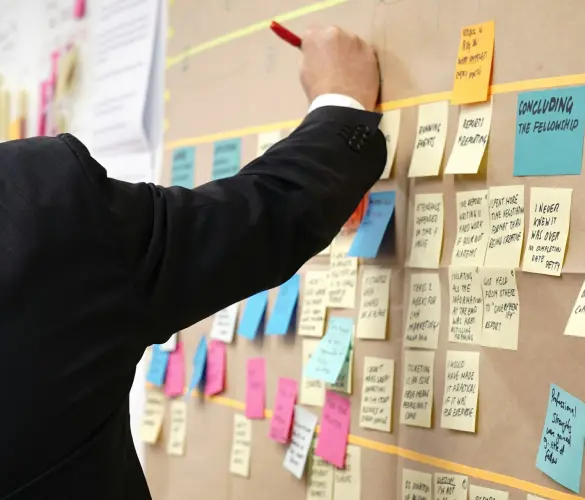
Business / 12 min read
Business / 12 min read
How to Take on More WordPress Development Projects While Maintaining Quality
As a digital agency that provides WordPress services, your job is to take on as many projects as possible while maintaining the highest quality. This is easier said than done…
Read More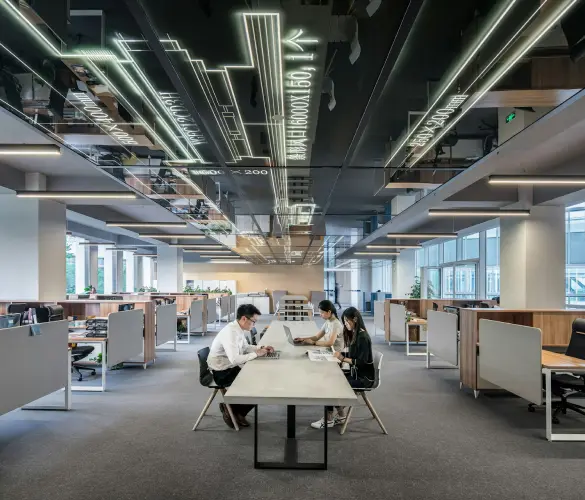
Business / 9 min read
Business / 9 min read
How to Choose a WordPress Development Agency to Scale Your Projects?
When your agency starts to scale, you may decide that a big part of your expansion will be providing WordPress services. If that's the case but you don't have an…
Read More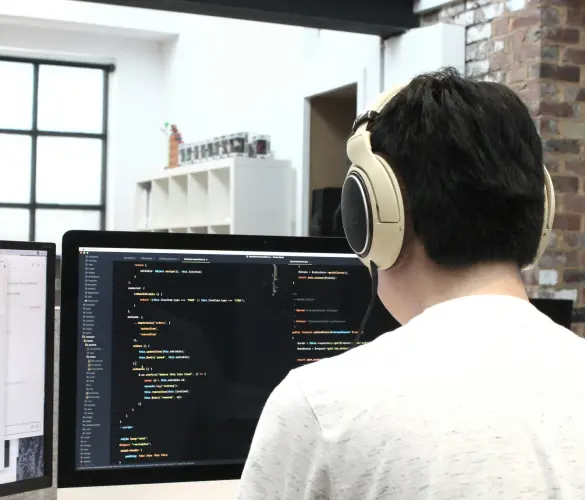
Business / 7 min read
Business / 7 min read
How to Optimize Time and Resources in WordPress Projects
WordPress agencies need to optimize and human resources use in order for their services (development, QA, design, etc.) to be profitable. They need to plan these projects very thoroughly to…
Read More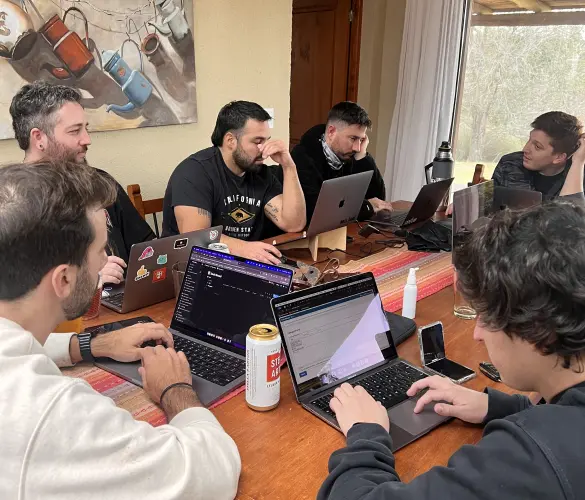
Business / 11 min read
Business / 11 min read
How WordPress Outsourcing Can Help Scale Your Agency
WordPress development outsourcing is becoming more frequent and affordable every day, helping global digital agencies of all sizes scale their services without the long-term investment of hiring an in-house team.…
Read More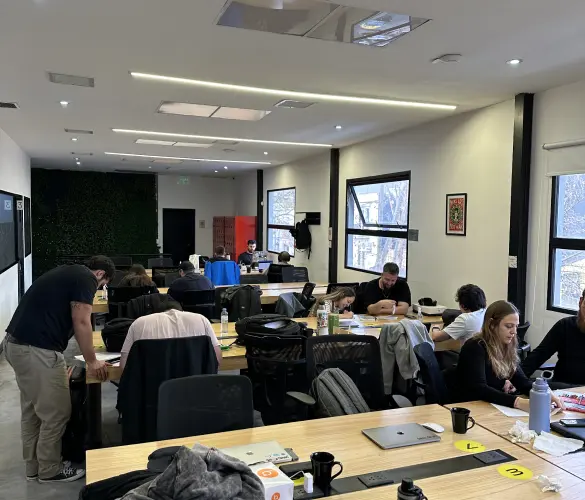
Business / 8 min read
Business / 8 min read
What Is a White Label WordPress Development Agency?
A white label WordPress development agency is a company of WordPress developers, QA analysts, and project managers who provide outsourced services to digital agencies that lack a development team. Importantly,…
Read More